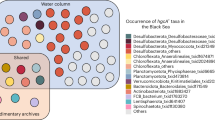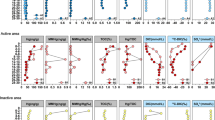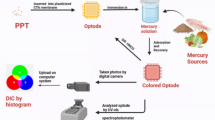Abstract
THE preparation of di-2-phenylethylmercury (I) has been reported by Criegee, Dimroth and Schempf1, and Nerdel and Makower2. Criegee et al.1 prepared (I) by the reaction of 2-phenylethylmagnesium chloride (II) with mercuric chloride and obtained (I) as an oily product, the identity of which was confirmed by its reaction with mercuric chloride to form 2-phenylethylmercuric chloride (III) (85 per cent) and with mercuric acetate to form 2-phenylethylmercuric acetate (35 per cent). The melting-point of (I) was not recorded. Nerdel and Makower2, using a similar method (reaction of 2-phenylethylmagnesium bromide (IV) with mercuric chloride), obtained a sample of (I) which crystallized at −40°.
This is a preview of subscription content, access via your institution
Access options
Subscribe to this journal
Receive 51 print issues and online access
$199.00 per year
only $3.90 per issue
Buy this article
- Purchase on SpringerLink
- Instant access to the full article PDF.
USD 39.95
Prices may be subject to local taxes which are calculated during checkout
Similar content being viewed by others
References
Criegee, R., Dimroth, P., and Schempf, R., Chem. Ber., 90, 1337 (1957).
Nerdel, F., and Makower, S., Naturwiss., 45, 490 (1958).
Hill, E. L., J. Amer. Chem. Soc., 50, 167 (1928).
Author information
Authors and Affiliations
Rights and permissions
About this article
Cite this article
BASS, K. Preparation and Melting Point of Di-2-phenylethylmercury. Nature 205, 169 (1965). https://doi.org/10.1038/205169a0
Published:
Issue date:
DOI: https://doi.org/10.1038/205169a0



